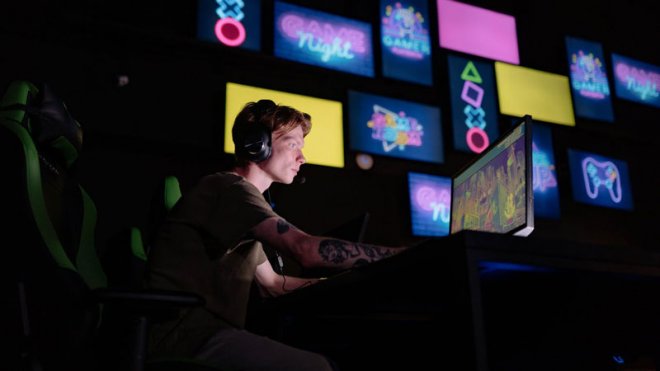How AI is changing the landscape of video game design?

For centuries, humans have been obsessed with the idea of creating artificial intelligence. The quest of building machines that can understand, learn, and respond like a human mind has been a captivating narrative of science fiction that gradually transformed into the reality of the 21st century. This groundbreaking transformation didn't leave the oasis of video game design untouched. Undeniably, artificial intelligence (AI) has been playing a leading role in redefining the contours of video game design in infinite ways. Let's dive into how the fusion of AI and video game design is crafting an unrivaled gaming experience.
Transforming game design and complexity
Every video game is like a different universe, each with its own set of rules, characters, plots, and strategies. The essence of artificial intelligence lies in making this universe not just more realistic but also dynamic and immersive. AI brings complexity to games, weaving intricate situations and challenges which makes the player feel challenged. You can read more on this topic, for example, at: https://gamingdojo.net/.
In the traditional model of video game design, the narrative was predefined, decisions were automated, and character actions, as well as responses, were quite predictable. However, with AI stepping in, game design has been freed from the confines of pre-set narratives and coder’s expectations. Algorithmically driven narratives can adjust real-time to player actions and simultaneously present new situations, obstacles, or opportunities. These algorithmic dialogues and narratives have made each gaming experience unique, magnifying the level of engagement for players.
Personalized gaming experience
A practical illustration of AI’s influence is the advent of personalized gaming. This consists of tailoring game levels, challenges, and narratives based on the individual player’s skills and preferences.
Machine learning algorithms and AI can analyze a massive amount of data about a player's choices and behavior during gameplay. Subsequently, AI adjusts the game's dynamics and mechanics in response to the player's individual gaming style, performance, and preference. Personalized gaming has brought an unparalleled level of immersion and emotional engagement to video games, transforming the way gamers experience virtual worlds.
Enhancing NPC behavior
Non-player characters (NPCs) are essential elements of the landscape of video game design. They are the characters that players interact with, yet are not controlled by human players. Rather, they are governed by the game's code, making their actions predictable and less interactive.
AI, however, is currently reshaping the behavior and role of NPCs. Advanced NPCs imbued with AI capabilities can interact with players in more dynamic and unpredictable ways, adding a layer of realism to the game. AI-enabled NPCs can learn from player behaviors, adapt tactics, evolve strategies and respond in realistic manners to in-game interactions thereby making the gaming environment more immersive and engaging.
Towards a new era in virtual world simulation
Virtual world simulation has been on the menus of video game designers for a while. Still, with AI, it is becoming more sophisticated, rich, and closer to reality. Imagine playing a game in a city where every element, from pedestrians to weather, changes and evolves over time, just like in the real world.
AI can simulate a living, dynamic world that operates by its own rules and not just by scripted events. It can control the weather, crowd behavior, traffic system, day-night cycle, ecosystem, and a lot more. AI can procedurally generate endless, yet consistent, variations of the game world while the game is being played.
In simple words, AI is the magic wand that is surfacing the future of video gaming, infusing life into the virtual gaming universe. It is morphing not just the graphics or narratives, but the entire philosophy of video game design. The journey has just begun, and AI promises to deliver a future of video gaming beyond our wildest imaginations.
• AI is making video game universes more realistic and dynamic.
• It allows for individual, tailored gaming experiences.
• It is used to create advanced NPCs that can interact with players in realistic ways.
• It provides a platform for more immersive and advanced virtual world simulations.
As a final word, we can confidently assert that AI is not just changing the landscape of video game design; it's revolutionizing it. We are on the brink of an exciting new era in gaming, catalyzed by the scientific marvel that is artificial intelligence. The fusion of AI and video game design is crafting an unrivaled gaming experience which is sure to catapult the gaming industry into a realm of unthinkable possibilities. As we watch this transformation unfold, we as gamers, developers, and spectators, are bound to embark on an unforgettable odyssey of discovery and excitement.




















